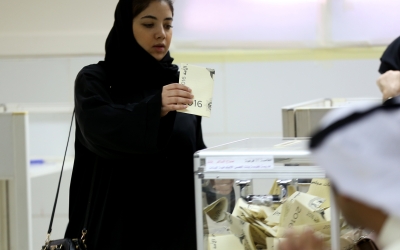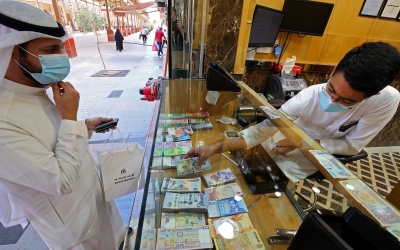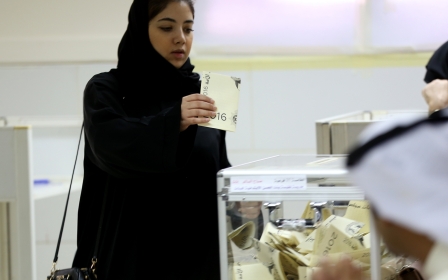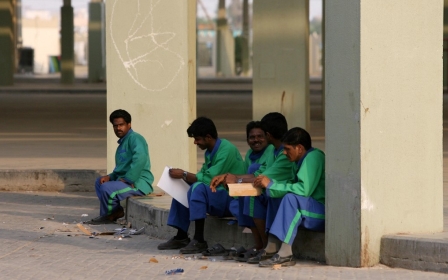Kuwait opposition scores win in parliamentary election
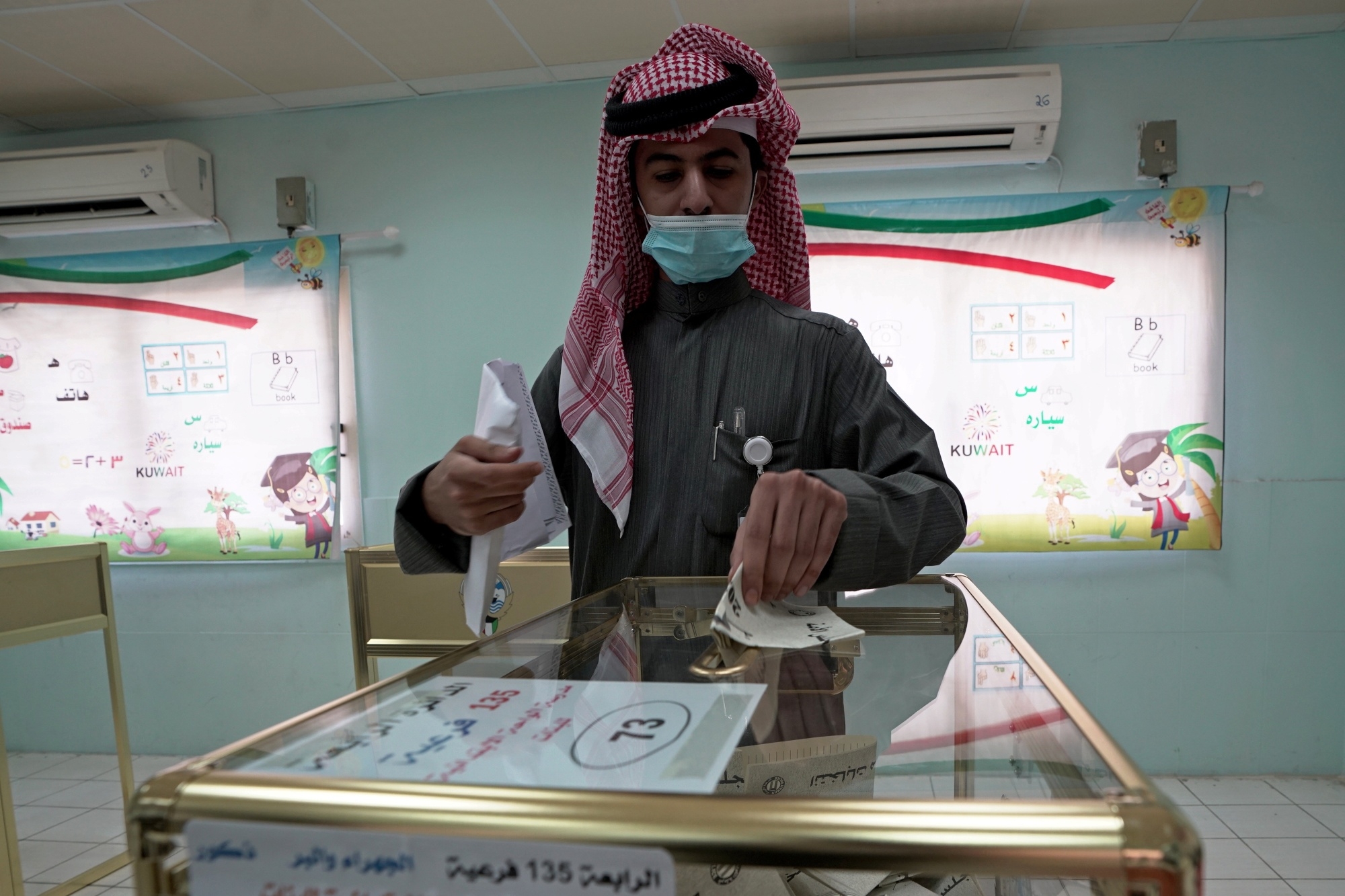
Kuwait's opposition took nearly half of parliament's seats in weekend polls, amid calls for reforms over corruption and high debt, but the sole woman lawmaker lost her seat.
Twenty-four of the National Assembly's 50 seats were won by candidates belonging to or leaning towards the opposition, up from 16 in the last parliament, according to results announced on Sunday by the electoral commission on state TV.
The polls were the first since the new emir, Sheikh Nawaf al-Ahmad al-Sabah, took office in September following the death of his half-brother, Sheikh Sabah al-Ahmad al-Sabah, at the age of 91.
The election, which takes place every four years, was overshadowed by Covid-19 and a consequent paring back of campaigns that in normal times draw thousands for lavish banquets and over-the-top events.
Win for the opposition, loss for women
New MEE newsletter: Jerusalem Dispatch
Sign up to get the latest insights and analysis on Israel-Palestine, alongside Turkey Unpacked and other MEE newsletters
While a record 29 women ran for office in Saturday's race, none were elected, including MP Safaa al-Hashem who lost her seat - a blow to the status of women who have fought hard over recent years for more representation in the oil-rich emirate.
Women won the right to vote and run in elections in Kuwait only 15 years ago.
Ahead of the election, women candidates and rights advocates told Middle East Eye that they continued to face heightened scrutiny and criticism in politics compared with their male peers, while having access to fewer resources.
According to a 2019 OECD report, women's roles are still largely limited to the household and they still face widespread discrimination in Kuwait. They lack the same legal status and rights as men, and are discriminated against in matters of "divorce, child custody, citizenship, the workplace, and in certain circumstances, the value of their testimony in a sharia court".
The election of 30 candidates under the age of 45 nonetheless sent out a promising signal to youth hoping for change and reform. Thirty-one new faces will enter the new parliament, results showed.
The Muslim Brotherhood-linked Islamic Constitutional Movement (ICM) won three seats, while candidates from the Shia Muslim minority population won six.
Political parties are banned in Kuwait, which has been ruled by the al-Sabah family for two-and-a-half centuries, but many groups operate freely as de facto parties. The opposition coalition is made up of individuals, rather than well-defined parties with a distinct ideology.
Voter anger
Those in Kuwait's opposition have proposed electoral reforms and a pardon for dissidents, many in self-exile, to the new emir.
"There is a big change in the composition of the new National Assembly," Kuwait analyst Ayed al-Manaa told AFP.
"This is an indication of the voters' anger over the performance of the previous parliament and of their desire for change in economic, health, education" and services, he said.
'The results achieved by the opposition were bigger than expected. There was a will to turn the tables on those allied with the government'
- Nasser al-Abdali
"The results achieved by the opposition were bigger than expected. There was a will to turn the tables on those allied with the government," political analyst Mohamad al-Dosayri told Reuters.
Another Kuwaiti analyst, Nasser al-Abdali, told the news agency that the new makeup of parliament would likely lead to squabbling over issues such as a debt law that has long-faced legislative gridlock and election laws.
Many may oppose any austerity measures in the cradle-to-grave welfare state, needed to slash heavy deficits, or raising the government's debt ceilings, the two analysts said.
The country has the Gulf's oldest elected parliament, but under the constitution the emir has extensive powers and can dissolve the legislature at the recommendation of the government.
Frequent rows and deadlocks between cabinet and parliament have led to successive government reshuffles and dissolutions of parliament in recent years, hampering investment and economic and fiscal reform.
Polls hit by pandemic
The oil-rich emirate has enforced some of the strictest regulations in the Gulf to combat the spread of the virus, imposing a months-long lockdown earlier this year.
While some of those curbs have been eased, masks remain mandatory outdoors and temperature checks routine.
Infected people or those under enforced quarantine are usually confined to home, with electronic wristbands monitoring their movements.
Five polling stations - one in each electoral district - were designated for those infected with coronavirus.
This year's campaign has mainly been fought on social networks and in the media.
Yet the normal themes have remained: promises to fight corruption and address youth employment, along with debates over freedom of expression, housing, education and the thorny issue of the stateless "bidoon" minority.
Like most Gulf countries, Kuwait's economy has been hit hard by the double whammy of the pandemic and the depressed price of oil.
Kuwait's economy, which is worth nearly $140bn, is facing a deficit of $46bn this year.
While parliament has the power to vote the prime minister and cabinet members out of office, the Kuwaiti political set-up means change is not easy.
Power is concentrated in the royal family, with the emir choosing the prime minister and 15 of the 16 cabinet posts.
As per protocol, the cabinet resigned on Sunday. The emir will appoint a premier to select a new cabinet.
Middle East Eye delivers independent and unrivalled coverage and analysis of the Middle East, North Africa and beyond. To learn more about republishing this content and the associated fees, please fill out this form. More about MEE can be found here.


